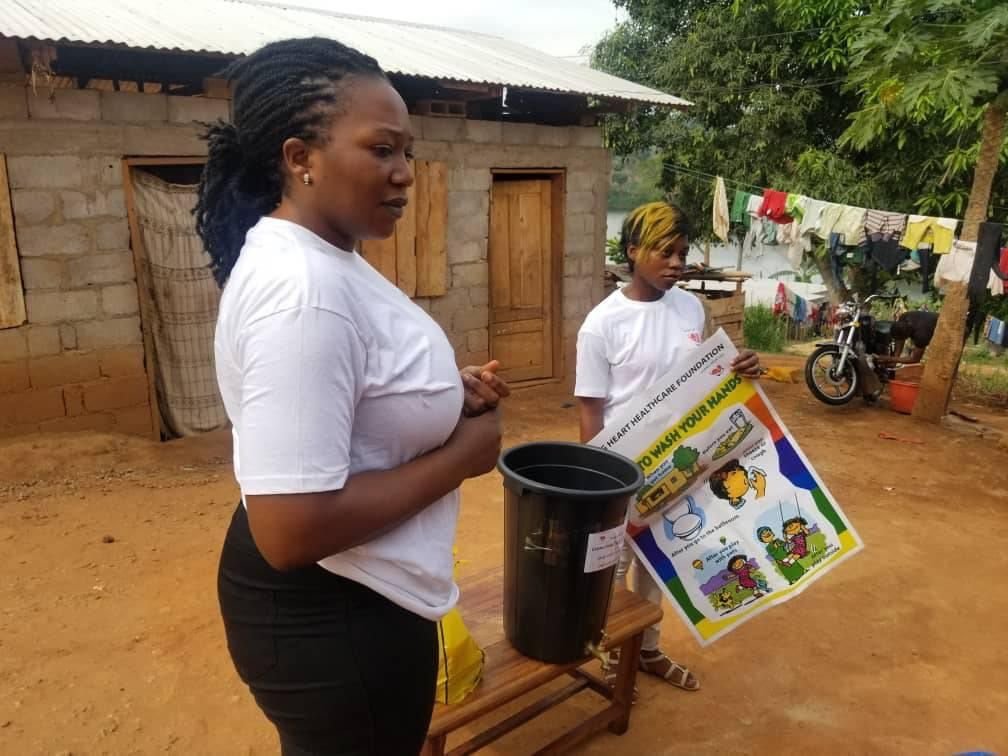Menstruation is a natural process experienced by women worldwide, yet in many parts of the world, including Cameroon, it remains a topic shrouded in silence and stigma. The lack of access to proper menstrual health resources and education perpetuates myths and taboos surrounding menstruation, impacting the health and well-being of women and girls. In this article, we delve into the state of menstrual health and hygiene in Cameroon, exploring challenges, initiatives, and the way forward.
Introduction to Menstrual Health and Hygiene
Menstrual health encompasses physical, emotional, and social well-being during menstruation. It is crucial for women and girls to manage menstruation hygienically and with dignity. However, inadequate access to menstrual products, coupled with cultural taboos, poses significant challenges.

Menstrual Health Challenges in Cameroon
Lack of Access to Menstrual Products
In many regions of Cameroon, access to affordable and hygienic menstrual products remains limited. This lack of accessibility often forces women and girls to resort to unhygienic alternatives, leading to health risks.
Stigma and Cultural Taboos
Menstruation is surrounded by stigma and misconceptions in Cameroonian society. Cultural taboos dictate that menstruating women are impure or should isolate themselves, leading to social exclusion and shame.
Limited Education on Menstrual Hygiene
A lack of comprehensive education on menstrual hygiene perpetuates myths and misinformation. Many girls grow up without adequate knowledge of how to manage menstruation hygienically, leading to health complications.
Government Initiatives and Policies
The Cameroonian government has recognized the importance of addressing menstrual health and has implemented several initiatives to improve access to menstrual hygiene products and education.

Non-Governmental Organizations (NGOs) Working in Cameroon
Numerous NGOs are actively involved in promoting menstrual health and hygiene in Cameroon. These organizations conduct awareness campaigns, distribute menstrual products, and provide educational resources.
Access to Menstrual Products
Efforts have been made to improve the availability and affordability of menstrual products in Cameroon. NGOs, government initiatives, and private sector partnerships play a crucial role in ensuring that women and girls have access to these essential products.
Promoting Education and Awareness
Educating both girls and boys about menstruation is essential for breaking the silence and dispelling myths. Awareness campaigns and workshops help empower women and girls to manage menstruation confidently and hygienically.
Cultural Perspectives on Menstruation
Cultural beliefs surrounding menstruation contribute to the stigma and taboo associated with it. However, there is a gradual shift towards more open discussions and acceptance of menstruation as a natural bodily process.
Health Implications of Poor Menstrual Hygiene
Poor menstrual hygiene practices can lead to various health issues, including infections and reproductive complications. Addressing these issues requires comprehensive education and access to proper hygiene resources.
Innovations in Menstrual Hygiene Management
Innovative solutions, such as reusable menstrual products and menstrual hygiene apps, are emerging to address the challenges faced by women and girls in managing menstruation. These sustainable solutions offer cost-effective and eco-friendly alternatives.
Addressing Menstrual Health in Schools
Schools play a vital role in educating young girls about menstrual health and providing them with necessary resources. Integrating menstrual hygiene education into the school curriculum and ensuring access to facilities can empower girls and reduce absenteeism.
Community Involvement and Support
Engaging communities in discussions about menstrual health fosters a supportive environment for women and girls. By breaking the silence and challenging stigma, communities can create a more inclusive and empowering environment for all.
Conclusion
Ensuring menstrual health and hygiene is essential for the well-being and empowerment of women and girls in Cameroon. By addressing challenges, promoting education, and fostering community support, we can create a society where menstruation is no longer a taboo but a natural and respected aspect of women’s lives.
FAQs (Frequently Asked Questions)
- Why is menstrual health important?
- Menstrual health is crucial for the physical, emotional, and social well-being of women and girls. It impacts their overall health and quality of life.
- What are some common misconceptions about menstruation?
- Common misconceptions include the belief that menstruating women are impure or should avoid certain activities. Education is key to dispelling these myths.
- How can I support menstrual health initiatives in Cameroon?
- You can support NGOs working in Cameroon, advocate for comprehensive menstrual health education, and challenge stigma and taboos surrounding menstruation.
- Are there sustainable alternatives to traditional menstrual products?
- Yes, there are various sustainable alternatives such as menstrual cups, cloth pads, and period underwear that offer cost-effective and eco-friendly options.
- What role do men play in promoting menstrual health?
- Men have a crucial role in challenging societal norms and supporting women and girls in managing menstruation. By being allies and advocates, men can contribute to creating a more inclusive environment.
